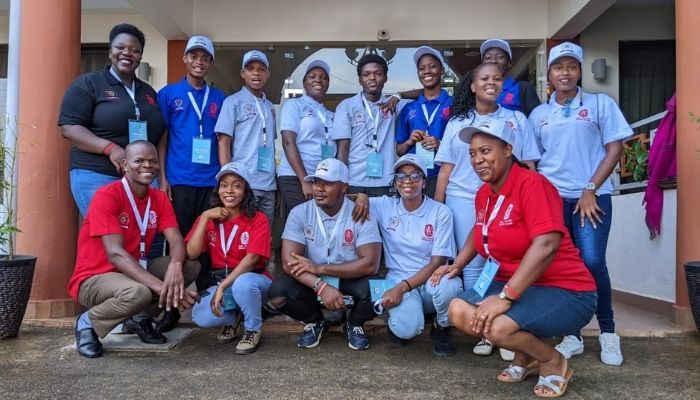Les jeunes, acteurs communautaires du changement : pour un plaidoyer plus résilient en faveur de la lutte contre le paludisme en Afrique
The African youth are increasingly cultivating their role as community change agents in the malaria response. They continue to evolve in their leadership practice in the policy space, ensuring that they are represented and heard. As the world commemorates World Malaria Day 2022 under the theme “Advance Equity. Build Resilience. End Malaria”, I am elated to witness first-hand – as part of the ALMA Youth Advisory Council – how youth in Africa can effectively play their role of community agents together with a broader movement of malaria youth army champions established upon the premise that while significant progress has been made to combat malaria, action must be taken to accelerate progress on malaria elimination and promotion of universal health coverage which is essential in driving gains towards better health and wellbeing for all.
Two years on, the COVID-19 pandemic continues to teach us that national and community health systems need to be better prepared to respond to emerging public health concerns. Building resilient and sustainable systems for health is a pathway to achieving the end of AIDS, tuberculosis and malaria by 2030 as premised in the Africa Health Strategy, the Catalytic Framework to End AIDS, TB, and Eliminate Malaria in Africa by 2030, and AU Agenda 2030. The youth can and should participate in transforming these political commitments into actionable projects that advance malaria elimination in Africa.

In addition to the three continental policy frameworks mentioned above, the African Plan of Action for Youth Empowerment – 2019 to 2023 (APAYE) highlights that strategic and adequate investment in the health, education, employment and engagement of the youth can yield increased savings, higher productivity and economic growth. APAYE, a continental framework for implementing the Africa Youth Charter, recognises that youth face significant barriers to inclusion and participation in decision-making discourse in Africa. However, this should not deter us from designing and implementing innovative malaria advocacy initiatives on the continent, especially within our respective communities.
How can youth in Africa activate their power as community change agents to build resilience in malaria advocacy?
Bridging the gap between research and implementation
A resilient and sustainable system for health relies on data! Quality health data allows countries to design and deliver the right health services to the right people at the right time. Data allows resources to be spent most efficiently and effectively. The youth can be involved in designing community-centred data systems such as the ALMA Scorecard Hub. They can also support at the surveillance and reporting level.
Designing and leading advocacy initiatives
Zero Malaria Starts with Me Campaign is an excellent example of an initiative where advocacy is conducted in a non-combative environment that seeks to influence increased political will and domestic investments for malaria elimination. The youth can be involved in the campaign at the country-level or through the continental opportunities available. The youth can also design advocacy initiatives that aim to expand community knowledge on malaria and other related emerging issues such as the social determinants of health and longer-term (both direct and indirect) impacts of climate change on health.
Aligning policy and practice
Integrating and aligning commitments and action into the malaria programme and broader health reforms are critical to ensure everyone is involved in attaining the targets we have set as a continent. The involvement of the youth in this level of accountability goes beyond the malaria-related targets to other goals tied to socio-economic issues, such as the African Leadership Meeting on Investing in Health Declaration, which calls for leadership and ownership of the health system’s domestic financing of the health system strengthening in Africa. It also included alignment to the AU Theme For The Year 2022 on advancing nutrition and food security as there is a direct relationship between health and nutrition.
These three ways are possible entry points for the youth to leverage existing opportunities to exercise their interest in the malaria response.
In conclusion, we have come a long way in the past years, but we are still losing lives to malaria in Africa. Reducing malaria by 90% and eliminating the disease in 35 countries by 2030 could save 10 million lives and unlock an estimated $4 trillion in economic benefits from productivity and health savings gains. The youth should rise and work towards progressive, youth-led approaches to improve how advocacy for malaria elimination is conducted in Africa.
Author

Whitney Mwangi
East Africa Co-lead, ALMA Youth Advisory Council and Health Communication and Advocacy Specialist, African Union Commission